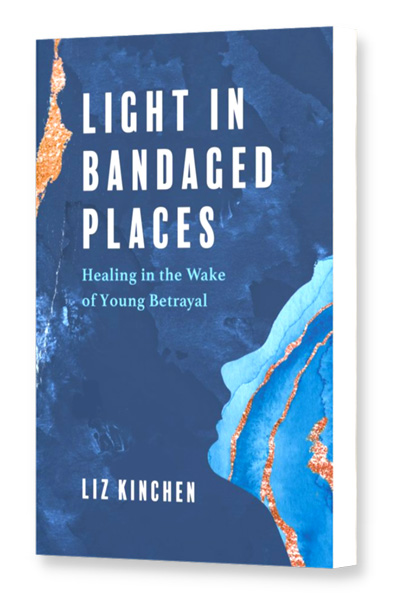
Estimated reading time: 5 minutes
A courageous woman confronts her past to heal from young trauma that has impacted her life and relationships for decades
—
My story of teenage seduction by a teacher is all too common – and no doubt far more than we realize. Whether it is a teacher, coach, family member, priest, or someone else in a position of power, this kind of betrayal and abuse continues to harm lives. Fortunately, the #MeToo movement has brought more awareness to the role of power dynamics in sexual abuse for both girls and women. Still, there is a vulnerability and innocence in young girls (and boys) that makes this betrayal of trust cut deep. In my case, I didn’t realize the harmful impact this ‘loving’ relationship had on me for many years.
My childhood was a lonely one, even though I had loving parents and four siblings. There wasn’t a lot of conversation, interaction, or involvement from any of them in my young life. I know there was love, but it didn’t manifest in attention to or connection with me. In psychological terms, I had ‘insecure attachment’ to my primary caretakers; I felt that I wasn’t important and that my emotional needs did not matter. I learned that invisibility was my rightful place, and I was a quiet and shy child.
In eighth grade, my middle-school English teacher took a liking to me and began treating me differently than my schoolmates. I felt seen and special for the first time. This began a five-year relationship of what felt like trust and love. He told me that ‘love was good’ and that others would not understand our love. Although the sexual attention seemed exciting, and I felt lucky to have him so interested in me, I also felt guilty about the lying and secrecy it required, and I dreaded the sex. My feelings of guilt and shame drove me to unconsciously protect myself and dissociate. Still, for decades I believed that no harm had been done.
As a young adult, I had many relationships with men, but in all of them, there was a way I was not present, not fully open and engaged, even with a loving husband.
I was drawn to relationships with older and sometimes married men; I had an unconscious familiarity with secrecy and deception. This led to struggles in my marriage, and I felt something was deeply wrong with me, but I didn’t know how to be any other way. I did not connect my intimacy issues with my teenage relationship. I also did not connect my childhood of loneliness and detachment from my family as having harmed me — it seemed normal to me.
This is what dissociation, self-deception, and not having parents who helped me feel seen and cared for can do. I had no one I could talk to, so there was nothing to show me that what was happening at the time was harmful.
I began years of therapy, and l learned that the trauma from sexual abuse as a child leads to shutting down or compartmentalizing the emotional parts of us that were hurt. Additionally, when a child’s emotional needs are not met by their caretakers, this too makes it difficult for that adult to access their emotions. Unless addressed, trauma shuts us down emotionally, and our experience and all its associated emotions live in our unconscious. From there, they silently govern our lives.
These factors made it difficult for me to be open and loving in adult relationships. Therapy helped me uncover, dismantle, and rewire those messages of unworthiness that had been hardwired into my psyche from a young age. I learned to re-parent my ‘inner child’ by offering her (myself) the attention, compassion, and loving presence that she never got as a child. Accessing my emotions, feeling empathy, compassion, and connecting with myself and others all came more easily.
It was not just therapy but also the love of my husband and close friends, and the unconditional love I felt for my children, that slowly thawed what was frozen inside, and I emerged more whole.
I returned to meditation, which I had done on and off since college, and immersed myself in Buddhist readings, talks, retreats, and daily practice. I joined a Buddhist practice group called a sangha, a word that means “community.” The teachings of mindfulness and compassion offered rich new territory for me to explore. I slowly softened a lifetime behavior of ignoring my needs, devaluing my worth, and ruminating and catastrophizing over events I cannot control.
As Buddhist practice and meditation became my anchor, I became more connected to myself, more embodied, and developed a broader field of vision. Listening, feeling empathy, compassion, and connecting with people all came more easily when I slowed down enough to be in the present moment. I became a better advocate for myself, knowing I deserve to have my opinions, emotions, and preferences and not erase them before they even have life. I learned there is joy, always available, waiting for me to embrace it.
It is from deep gratitude for my healing that I wrote my memoir, Light in Bandaged Places, and it is my hope that it can benefit others who have touched experiences similar to mine.
You may also enjoy reading Breaking the Cycle: Healing from Complex Trauma, by Laurie B. Timms.
